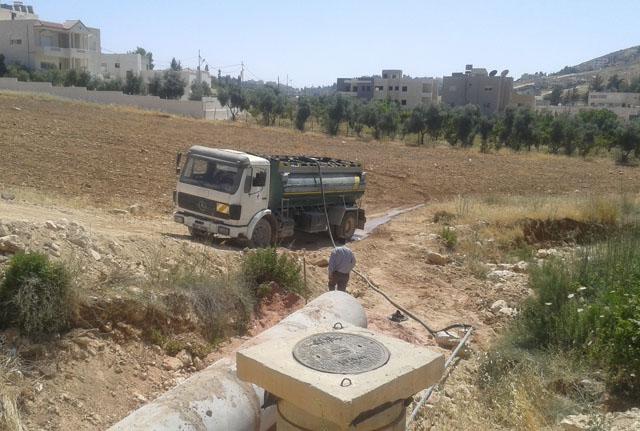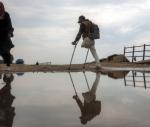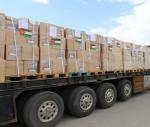You are here
Violators of water networks, resources to face stiffer penalties
By Hana Namrouqa - Jun 02,2014 - Last updated at Jun 02,2014
AMMAN — The 2014 Water Authority of Jordan (WAJ) Law has gone into effect after being ratified by a Royal Decree and published in the Official Gazette, a senior official said on Monday.
The amended law stipulates stricter penalties against violators of water networks, as well as those who dig illegal wells and pollute water resources, Water Minister Hazem Nasser said in a press statement.
Nasser noted that new penalties were introduced against those who abuse any element of the water system, ranging from several years in jail to fines worth thousands of dinars.
The law gives the WAJ secretary general the authority of a district governor and the fund collection committee authority to collect money owed to WAJ and its affiliate companies, the minister added.
The provision seeks to protect the rights of water institutions, which incur huge financial costs in the operation, maintenance and implementation of water projects, according to Nasser, who highlighted that many consumers don’t pay their water bills.
Under the new amendments, the ownership transition of any plot of land containing a well is forbidden until WAJ’s dues are paid. In addition, ownership transition of such land to a non-Jordanian is prohibited, unless approved by the Cabinet.
On penalties against violators on the water network, the new amendments stipulated that those who abuse water carriers and main water pipes, wastewater, pumping, purification or desalination stations, those who cause the pollution of water resources, pipes or stations used for drinking water, and those who dig or are involved in the digging of wells without obtaining a licence will be jailed up to five years and fined up to JD7,000.
In addition, violators of WAJ water and wastewater projects will be jailed for up to three years and fined up to JD5,000, according to the amended WAJ Law.
All penalties stipulated under the new law will be doubled in the case of repeat offenders, according to Nasser, who noted that water conveyance schemes and pipes are classified as “strategic, vital projects” in Article 31 of the legislation.
The minister called on all violators of water networks and resources to rectify their situation to avoid penalties, underscoring that the ministry is moving ahead with its “serious and strict” crackdown on violations on the water system and sources across the Kingdom.
The campaign was launched in August 2013 to end violations on water networks and seal all illegal wells.
Since the onset of the campaign, authorities have confiscated over 140 drilling rigs, sealed more than 240 illegal wells and dismantled almost 10,000 pipes that were diverting tens of thousands of cubic metres every day.
Related Articles
Authorities on Sunday discovered an illegal fixture on a water main that supplies the capital with a third of its water needs, according to a government official.
Authorities on Saturday discovered a violation on a water main in Qastal, which was diverting 1,500 cubic metres of water per day, according to a government official.
The Ministry of Water and Irrigation on Wednesday dismantled an illegal pipe in Balqa Governorate that was diverting 12,000 cubic metres of water monthly to a household, according to a government official.

















